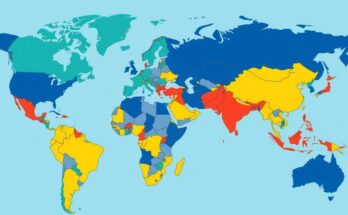Germany will hold snap elections on February 23, prompted by Chancellor Scholz’s coalition collapse. The date results from a compromise between major political parties amid economic challenges and pressures from geopolitical events. Scholz faces a crucial confidence vote, leading to President Steinmeier’s intervention to dissolve the Bundestag. The political landscape is increasingly fragmented, with rising support for the far-right parties complicating coalition dynamics.
Germany will hold snap elections on February 23 due to the collapse of Chancellor Olaf Scholz’s three-party coalition. This election date, a compromise among the country’s major political factions, balances the conservative opposition’s desire for a quick resolution with Scholz’s wish for additional preparation time. The election is necessary to establish a stable government amidst pressing economic challenges, including rising inflation and geopolitical tensions caused by Russia’s invasion of Ukraine. As part of the political timeline, Scholz will face a confidence vote on December 16, widely expected to fail, leading President Frank-Walter Steinmeier to dissolve the Bundestag. Following this, elections must be conducted within two months to ensure governance continuity. Steinmeier has expressed support for this timeline, calling it realistic, and encouraged all political parties to work together for Germany’s stability during this transitional period. The economic backdrop of these elections includes challenges from inflation and competition from other global powers, notably the United States and China. The coalition breakdown occurred after disagreements over fiscal policies, leading to the withdrawal of the Free Democratic Party from the alliance. With the rise of the far-right Alternative for Germany (AfD), which is polling at around 20%, the political landscape in Germany has become increasingly fragmented. Current opinion polls place the center-right alliance, the CDU/CSU, in the lead, while the SPD is significantly trailing. The outcome of the forthcoming elections remains uncertain as the political parties prepare to launch their campaigns amid winter conditions, which could affect voter turnout.
The need for snap elections in Germany emerges from the recent collapse of Chancellor Olaf Scholz’s three-party coalition government. Schisms over economic policy culminated in the exit of the Free Democratic Party, jeopardizing governance stability in the nation. With pressing issues like inflation and international pressures exacerbating the situation, the February elections are seen as critical for restoring effective leadership. The political atmosphere is further complicated by the rise of competing parties, notably the far-right AfD, which shapes the stakes for both the established parties and the electorate.
In summary, snap elections in Germany have been scheduled for February 23, following the dissolution of Chancellor Olaf Scholz’s coalition government. This decision comes amid significant economic pressures and political fragmentation, with an aim to restore stability. The context of these elections, including domestic divisions and international challenges, will play a crucial role in shaping the future of Germany’s political landscape.
Original Source: www.aljazeera.com




